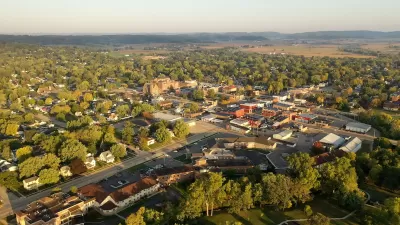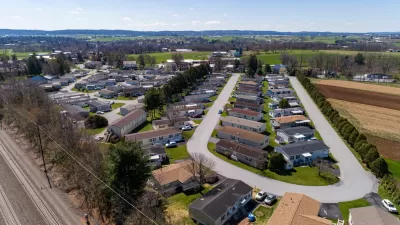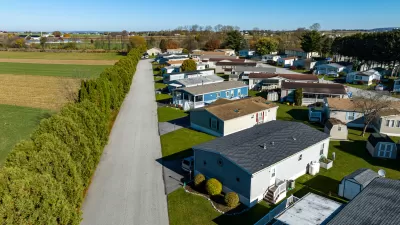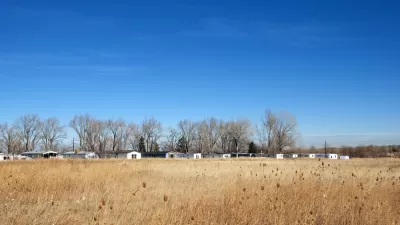The incoming Congress will have a say in bolstering — or harming — the only federal housing program focused on affordable housing in rural areas.

In a piece for The Daily Yonder, Emily Nosse-Leirer explains why reforming the United States Department of Agriculture’s Rural Housing Service (USDA RHS) could be one cause that politicians from across the spectrum can get behind.
As Nosse-Leirer writes, “RHS is a lender, a mortgage guarantor, and a rental assistance provider for millions of American renters, homeowners, and housing developers, serving low- and moderate-income earners.” It is often the only form of housing assistance available to rural communities.
A proposed version of the Rural Housing Service Reform Act would address the impending crisis faced by USDA-funded rental housing, which will lose assistance when its mortgages expire. “The bill will allow the rental assistance to continue in properties that choose to enter a long-term contract with RHS after their mortgages are paid off.”
Nosse-Leirer also suggests that the incoming 119th Congress should also continue funding the program to ensure the low-income people who rely on it are able to stay in their homes. “Continued lending authority for multifamily loans would allow private, nonprofit, and governmental developers to build and preserve desperately needed housing across rural America.” The program is also a key source of mortgage loans for rural households.
FULL STORY: Commentary: While Political Polarization Is Higher Than Ever, Rural Housing is a Sure Bipartisan Bet

Maui's Vacation Rental Debate Turns Ugly
Verbal attacks, misinformation campaigns and fistfights plague a high-stakes debate to convert thousands of vacation rentals into long-term housing.

Planetizen Federal Action Tracker
A weekly monitor of how Trump’s orders and actions are impacting planners and planning in America.

Chicago’s Ghost Rails
Just beneath the surface of the modern city lie the remnants of its expansive early 20th-century streetcar system.

Bend, Oregon Zoning Reforms Prioritize Small-Scale Housing
The city altered its zoning code to allow multi-family housing and eliminated parking mandates citywide.

Amtrak Cutting Jobs, Funding to High-Speed Rail
The agency plans to cut 10 percent of its workforce and has confirmed it will not fund new high-speed rail projects.

LA Denies Basic Services to Unhoused Residents
The city has repeatedly failed to respond to requests for trash pickup at encampment sites, and eliminated a program that provided mobile showers and toilets.
Urban Design for Planners 1: Software Tools
This six-course series explores essential urban design concepts using open source software and equips planners with the tools they need to participate fully in the urban design process.
Planning for Universal Design
Learn the tools for implementing Universal Design in planning regulations.
planning NEXT
Appalachian Highlands Housing Partners
Mpact (founded as Rail~Volution)
City of Camden Redevelopment Agency
City of Astoria
City of Portland
City of Laramie





























